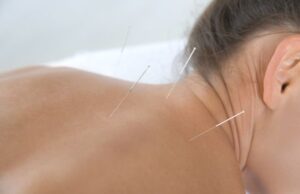
Allergies can be extremely frustrating, especially when the symptoms are severe and persist for long periods. While there are numerous medications that are available to alleviate allergy symptoms temporarily, it is always better to look for long-term solutions. Acupuncture is an ancient Chinese healing practice that is becoming increasingly popular among Western countries as well. Acupuncture therapy involves inserting needles through the skin at specific points on the body’s meridians to stimulate healing. In this blog post, we will explore whether acupuncture can provide relief from allergies and if it’s a cure or a mere soothe.
Acupuncture has been found to be very effective in relieving allergies to a significant extent. It is a natural remedy that targets the root cause of the symptoms rather than just providing relief from the symptoms themselves. Because allergies can be caused by many different factors such as pollen, dust, mold, pet dander, or food, acupuncture can help address the underlying issues that trigger the symptoms. Acupuncture allows the body to relax and also strengthens the immune system, providing greater resistance to allergens. Many people who have tried acupuncture for allergy relief report symptoms improving, and some even achieve a complete cure from acupuncture therapy.
One reason why acupuncture may be effective for treating allergies is that it stimulates the body’s natural healing processes. Acupuncture balances the body’s Qi, a vital energy that flows through the meridians, and encourages the free flow of Qi throughout the body. In Chinese medicine, allergies are considered an imbalance of the body caused by Qi blockages or imbalances within the body. Acupuncture aims to restore balance and harmony within the body, providing relief from allergy symptoms and enhancing overall health.
Another advantage of acupuncture therapy is that it has no adverse side effects. Unlike prescription or over-the-counter allergy medications that can cause drowsiness, dry mouth, headaches, and other side effects, acupuncture does not cause any negative side effects. This makes acupuncture a much safer option, especially for patients who might react poorly to traditional allergy medications. Additionally, acupuncture treatments are non-invasive and are generally painless.
While acupuncture is not a cure-all, it has proven to be an effective treatment for many conditions, including allergies. While some people experience a complete recovery from allergies with acupuncture therapy, others may require ongoing treatments to maintain symptom relief. Overall, acupuncture can not only soothe allergy symptoms but also potentially cure the underlying cause for some. Its bevy of benefits and minimal negative side effects make it an excellent alternative treatment to consider for patients looking to improve their allergy symptoms.
Allergies can be frustrating and disruptive, but there are natural remedies available to aid in easing symptoms and potentially even curing them entirely. Acupuncture is a safe and effective remedy that stimulates the body’s natural healing processes and strengthens the immune system to provide relief from allergies. Whether used as a stand-alone treatment or in conjunction with other therapies, acupuncture is a great option for individuals looking to get long-lasting relief from allergy symptoms. Consult a licensed acupuncturist today to obtain personalized advice about how acupuncture may benefit you.


Follow Us